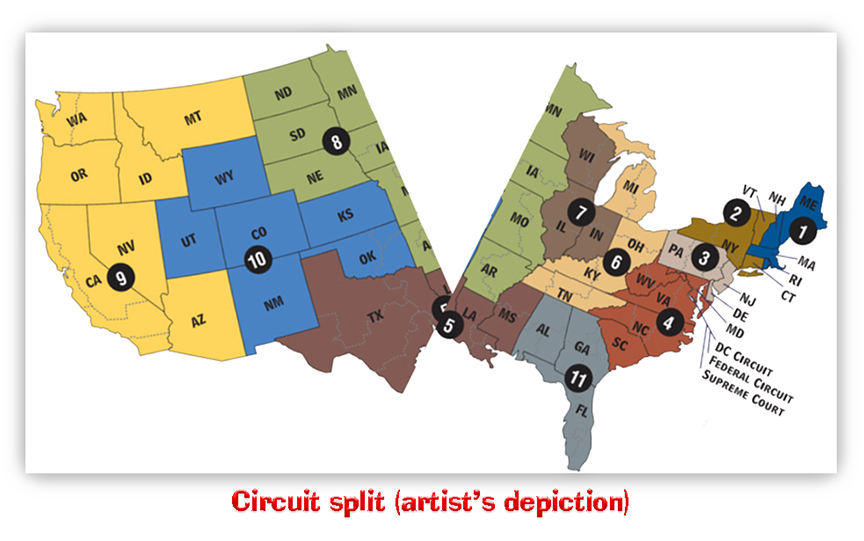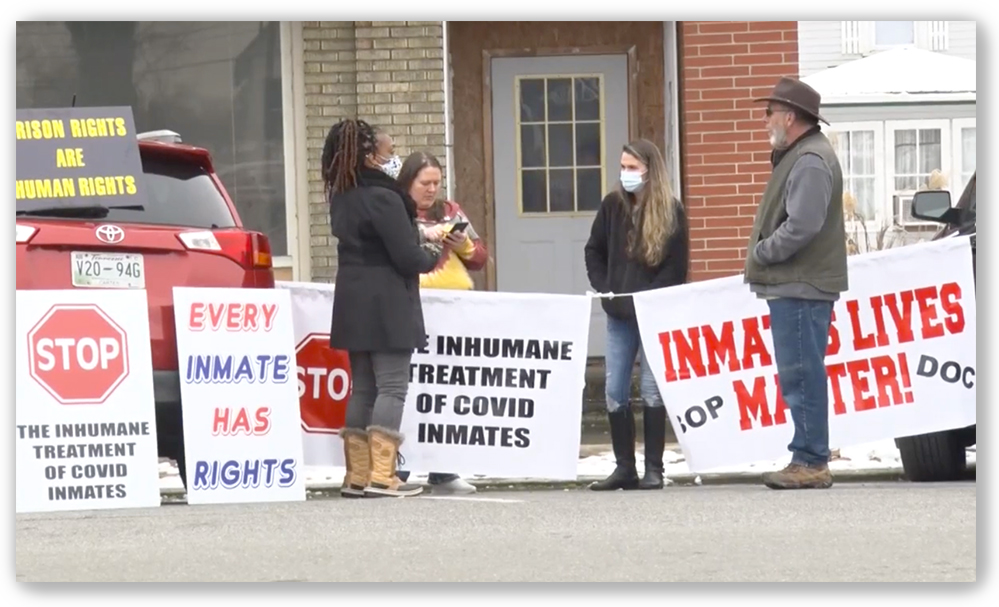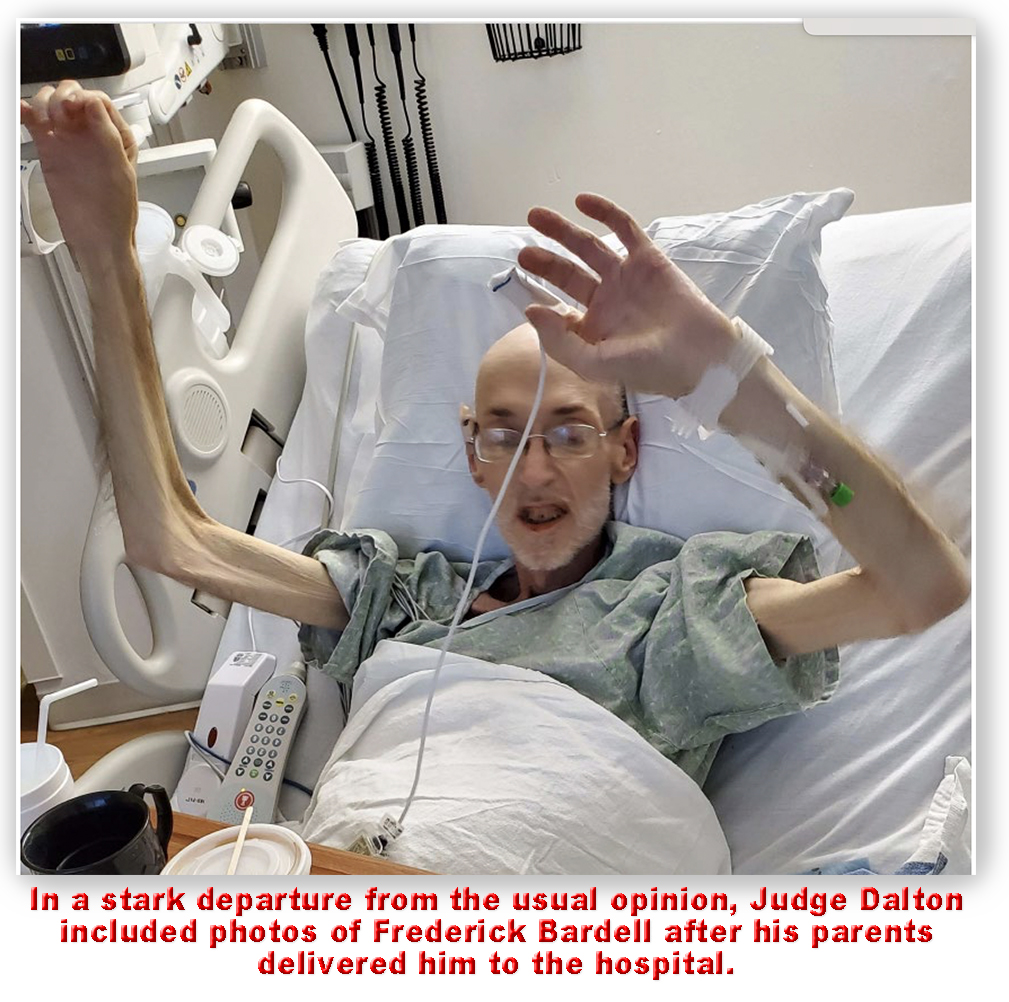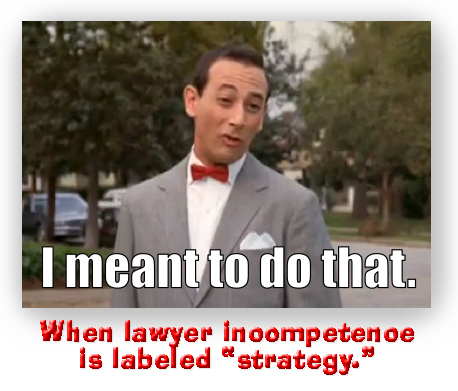We post news and comment on federal criminal justice issues, focused primarily on trial and post-conviction matters, legislative initiatives, and sentencing issues.

… IS A FAILURE TO COMMUNICATE
 We Should Have Told You It Would Be On the Test: If email is any indication, not only did Federal prisoners receive First Step Act earned-time credits applied well after the credits were promised, but what was delivered was well short of what was reasonably anticipated.
We Should Have Told You It Would Be On the Test: If email is any indication, not only did Federal prisoners receive First Step Act earned-time credits applied well after the credits were promised, but what was delivered was well short of what was reasonably anticipated.
Writing in Forbes last week, Walter Pavlo reported that although BOP Director Colette Peters told the Senate Judiciary Committee during her September 28 testimony that the agency’s new “auto-calc” program was already up and running, “it was not until the week of October 3rd that FSA credits started to be applied. As one prisoner told me, ‘I was expecting a year of credits and I got 4 months. I have no idea what happened’.”
Pavlo said that “what happened is that the calculator still has errors in it. Prisoners who were transferred to a halfway house after receiving an interim calculation of their sentence, were called in and told they would be returning to prison after the new calculation took away their year.”
Pavlo wrote, “One of the main factors that seems to be causing issues is that federal prisoners were told to complete a needs assessment survey when they first entered prison. The survey was part of the FSA in that it was meant to provide an assessment of the types of programs, needs, that the prisoner would address while in prison. The assessment was to be done on-line through an internal computer terminal that prisoners use for email communications with their families… What prisoners were not told was that the survey’s completion was a requirement to initiating the FSA credits. All of the prisoners I spoke to stated that they were never told of the survey’s importance nor could I find information about this in the FSA nor in any directive given to prisoners.”
Pavlo’s report is consistent with email complaints I have gotten from prisoners that no one ever suggested that the needs surveys served any necessary purpose.
Pavlo quoted Emery Nelson of the BOP is quoted as saying, “Completion of the self-assessment survey is only one factor which determines when an inmate begins earning FSA time credits.”
We’re Not Listening to You: The DOJ Office of Inspector General told BOP Director Colette Peters two weeks ago about an aspect of its recent investigation into sexual abuse of inmates by BOP employees that it found troubling.
 “These concerns arose when the OIG recently inquired of the BOP’s Office of Internal Affairs (OIA)… about a disciplinary action taken by the BOP following an OIG investigation of alleged sexual abuse by a BOP employee. In response to our inquiry, we were told by OIA that, in cases that have not been accepted for criminal prosecution, the BOP will not rely on inmate testimony to make administrative misconduct findings and take disciplinary action against BOP employees, unless there is evidence aside from inmate testimony that independently establishes the misconduct…”
“These concerns arose when the OIG recently inquired of the BOP’s Office of Internal Affairs (OIA)… about a disciplinary action taken by the BOP following an OIG investigation of alleged sexual abuse by a BOP employee. In response to our inquiry, we were told by OIA that, in cases that have not been accepted for criminal prosecution, the BOP will not rely on inmate testimony to make administrative misconduct findings and take disciplinary action against BOP employees, unless there is evidence aside from inmate testimony that independently establishes the misconduct…”
OIG told Director Peters that BOP’s refusal to rely on inmate testimony to make misconduct findings in administrative matters “is inconsistent with the fact that such testimony is fully admissible in criminal and civil cases, and creates significant risks for the BOP in its handling of administrative misconduct matters. Inmate testimony alone has been found sufficient, and with corroborating evidence is often found sufficient, to support criminal convictions of BOP employees, where the evidentiary standard is proof beyond a reasonable doubt. In short, inmates are not disqualified from providing testimony with evidentiary value in federal courts, and there is no valid reason for the BOP to decline to rely on such testimony… where the evidentiary standard is the preponderance of the evidence. In addition, the OIG found that in the context of sexual misconduct cases, BOP policy and federal regulations, specifically those DOJ regulations implementing the Prison Rape Elimination Act (PREA), require the credibility of an alleged victim to be assessed on an individual basis and not be determined by the person’s status as an inmate.”
After the OIG provided the Bureau of Prisons with a draft of its report, BOP quickly denied that it had ever said it didn’t believe inmates as a matter of policy. The Inspector General was unimpressed:
However, contrary to this assertion, the statements made by the OIA to the OIG as reflected in this memorandum were made by OIA on multiple occasions. Moreover, as described later in this memorandum, we found that in cases where the OIG substantiated BOP employee misconduct relying on inmate testimony the OIA has, on more than one occasion, sent less serious findings to the BOP’s Employment Law Branch (ELB) and the BOP institution where the subject employee works.
So now who doesn’t believe whom?
Forbes, Bureau Of Prisons’ Failure To Communicate First Step Act (October 15, 2022)
DOJ Office of Inspector General, Notification of Concerns Regarding the Federal Bureau of Prisons’ (BOP) Treatment of Inmate Statements in Investigations of Alleged Misconduct by BOP Employees (October 12, 2022)
– Thomas L. Root






























